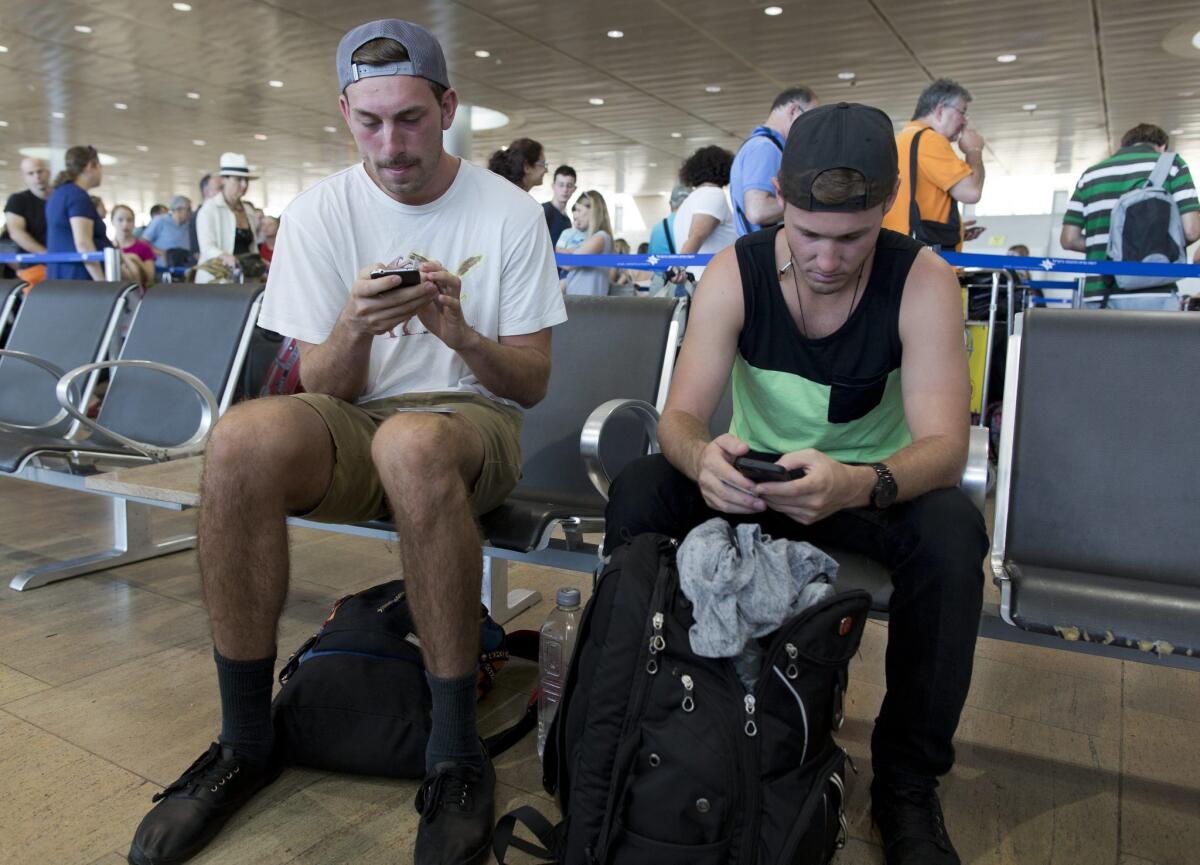Israel: FAA ban silences some traffic to Tel Aviv, and tourism suffers

With a second day of flight cancellations snarling plans and silencing some air traffic to Tel Aviv, one tour operator reports that life — but not travel-related business — is proceeding as usual.
The Federal Aviation Administration extended its ban on flights from the U.S. to Tel Aviv after a rocket on Tuesday landed about a mile from Ben Gurion airport. A listing of flights on the airport’s home page shows numerous flight cancellations, although some carriers continue to fly there.
U.S. airlines generally are waiving change fees for passengers, although they vary on the dates by which travel must begin.
Under “important notices” on its web page, United listed the FAA ban on Tel Aviv flights second (after the news of implementation of extra security at some airports, which the Transportation Security Administration announced July 6).
United’s exception policy covers travel that was to have taken place July 22-Aug. 15. For “rescheduled travel [that] commences by Aug. 31, 2014, change fees and fare differences will be waived. ... For other dates and ticket uses, the change fee will be waived, but a difference in fare may apply.”
Delta has similar information (but a bigger window for scheduled travel — instead of Aug. 15, it’s is Aug. 31. Air Canada also stopped flights and is waiving change fees.
If you have scheduled a flight, get in touch with the airline to find out its policies. This airline list contains phone numbers and websites.
On Monday, the State Department reissued a travel warning on Israel, asking that “U.S. citizens consider the deferral of non-essential travel to Israel and the West Bank and reaffirms the longstanding strong warning to U.S. citizens against any travel to the Gaza Strip.”
The warning, which updates a February warning, notes that the “security environment remains complex in Israel.”
But Elisa Moed, who, with Christina Samara, runs Breaking Bread Journeys, said life continues largely unchanged.
“We are living normal lives,” she said Wednesday in a telephone interview from her home near Tel Aviv. “We are going out to dinner, going to restaurants at night … taking our kids to the pool, going hiking.”
“It sounds odd to say, but it’s quite safe.”
But, she said, Jerusalem was largely empty on Tuesday when she visited, and Breaking Bread, which describes itself as a “cooperative Israeli-Palestinian tour program providing travelers with the opportunity to tour Israel and the Palestinian Territories,” has had cancellations.
“We want people to feel comfortable,” she said. “If they are going to feel apprehensive throughout their tour, I’m certainly I’m not going to fault that decision [to cancel].”
She said the U.S. State Department travel warning will have long-term implications for tourism to Israel. The country hosted 3.5 million visitors last year, including more than 630,000 from the U.S.
“It’s a real shame,” she said of the warning, which she called exaggerated. “People see these warnings and become very afraid. It impacts with them for months, maybe years. They’ll say, ‘Isn’t there a travel warning?’” when they think of Israel.”
Follow us on Twitter at @latimestravel
More to Read
Sign up for The Wild
We’ll help you find the best places to hike, bike and run, as well as the perfect silent spots for meditation and yoga.
You may occasionally receive promotional content from the Los Angeles Times.







